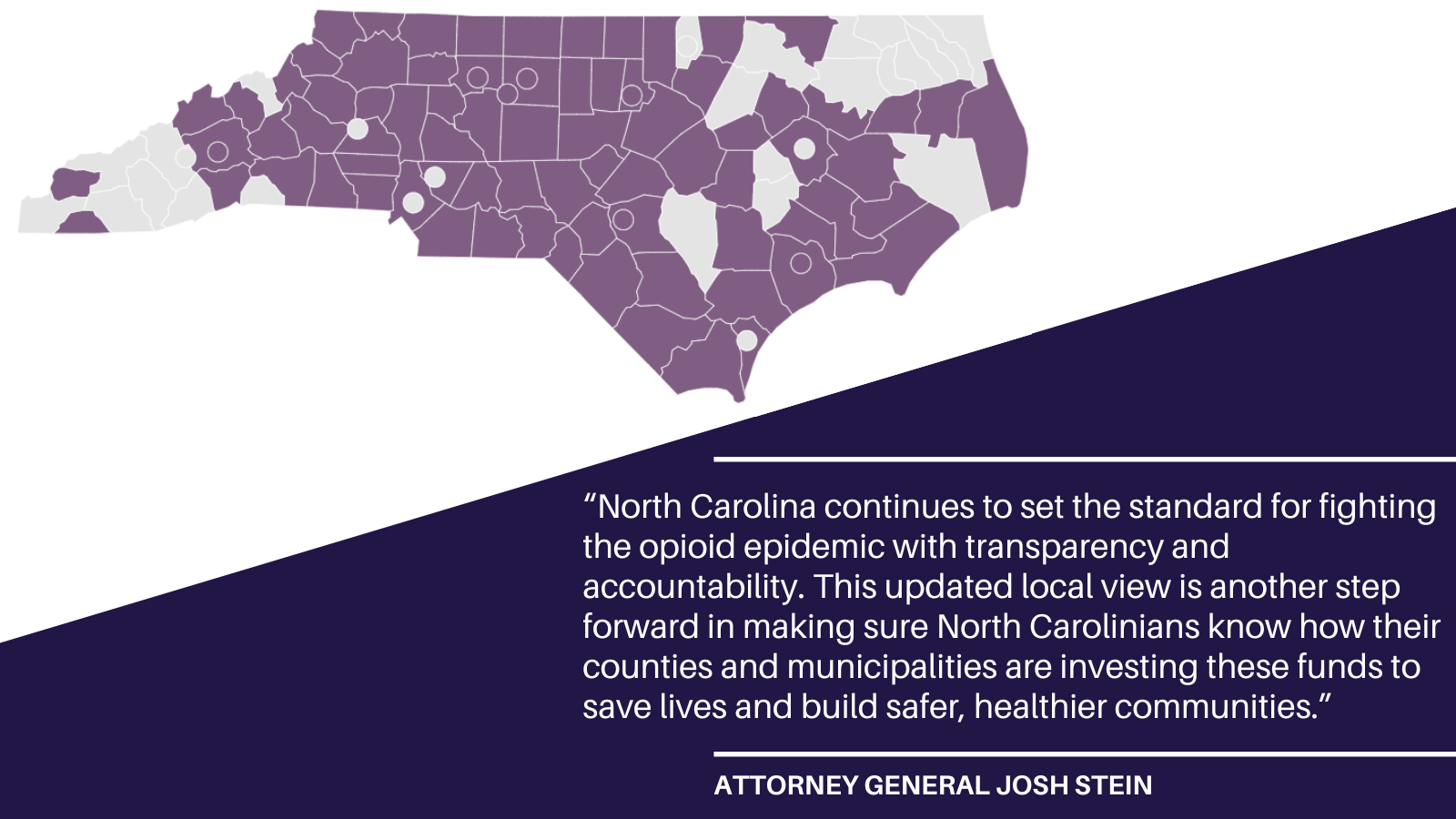
For Immediate Release:
Friday, October 25, 2024
Contact:
Nazneen Ahmed (919) 716-0060
(Raleigh) Attorney General Josh Stein announced today that North Carolinians now have an even more detailed view into their local governments’ spending of the $1.2 billion coming to counties and municipalities to address the opioid overdose crisis. The updated local view feature on the Community Opioid Resources Engine (CORE-NC) allows people to see how each local government is using its opioid settlement funds including payment schedules, spending plans, past spending, annual narratives, and local contacts.
“North Carolina continues to set the standard for fighting the opioid epidemic with transparency and accountability,” said Attorney General Josh Stein. “This updated local view is another step forward in making sure North Carolinians know how their counties and municipalities are investing these funds to save lives and build safer, healthier communities.”
CORE-NC was created in partnership with the UNC Injury Prevention Research Center, the North Carolina Association of County Commissioners, and the North Carolina Department of Health and Human Services.
Transparency and accountability are a hallmark of North Carolina’s approach to opioid settlement spending. CORE-NC includes resources, payment schedules, and extensive county-specific data to help guide local spending and guidance on strategies that work. In addition, CORE-NC serves as an information clearinghouse for reports on the use and impact of opioid settlement funds for the duration of the 18-year settlement. In total, Attorney General Stein has secured nearly $1.5 billion in opioid settlement funds for North Carolina.
North Carolina received an award for excellence from a public health coalition led by the Johns Hopkins Bloomberg School of Public Health for devoting almost all of these settlement funds to addressing the opioid epidemic and for creating CORE-NC to share information and promote evidence-based solutions.
###
